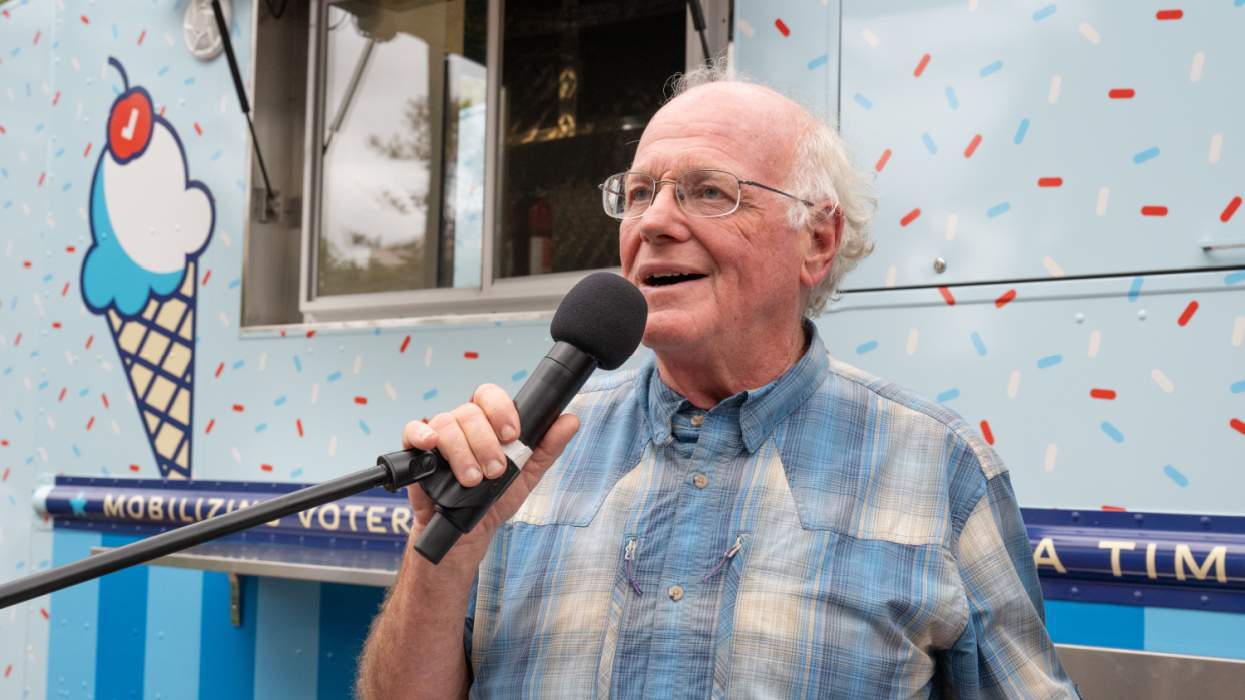The Alabama state House of Representatives passed three anti-LGBTQ+ laws on the same day.
Republicans approved the bills Thursday, which included an expansion of the state's "Don't Say Gay" law to encompass grades K-12, a ban on drag performances in some public spaces, an LGBTQ+ Pride flag ban in public schools, a ban against school employees using students' preferred names and pronouns, and a law requiring the Ten Commandments to be displaced in all public education institutions — even colleges. The bills now head to the state Senate.
HB 244 would "prohibit classroom instruction in public school prekindergarten through the twelfth grade related to gender identity or sexual orientation; to prohibit education employees from displaying certain flags and insignia in public preK-12 schools; and to prohibit education employees from referring to a student by pronouns inconsistent with the student's biological sex."
The "certain flags" employees are forbidden from displaying are flags "relating to or representing sexual orientation or gender identity in a classroom of a public preK-12 school," singling out the LGBTQ+ Pride flag.
HB 67 would "prohibit public K-12 schools and public libraries from knowingly presenting or sponsoring drag performances in the presence of a minor without the consent of the minor's parent or legal guardian." Drag is defined as "a performance in which a performer exhibits a sex identity that is different from the sex assigned to the performer at birth using clothing, makeup, or other physical markers," leaving uncertainty as to how it will impact transgender people.
HB 178/SB 166 would require "each local board of education and the governing body of each public institution of higher education to display the Ten Commandments and a context statement in a common area of each school under its jurisdiction." Schools are not required to use their funding for this, and can instead accept donations.
The American Civil Liberties Union of Alabama said in a statement in response to the bill's introduction that mandating the Ten Commandments in public schools is "unconstitutional – plain and simple."
"The First Amendment guarantees that students and their families — not politicians or the government — get to decide which religious beliefs, if any, they adopt and what role those beliefs will play in their lives," the group wrote. "Displaying the Ten Commandments in public-school classrooms blatantly violates this promise. Students can’t focus on learning if they don’t feel safe and welcome in their schools."
The organization denounced a previous version of the drag ban in a separate statement, calling it "an attempt to censor LGBTQ experiences from the public."
"The attempt of legislators to censor performers based on their personal viewpoints is contradictory to our first amendment rights," it wrote. "The ACLU of Alabama wants to protect our first amendment right to express ourselves. Drag performances are part of that expression and should not be censored by the state based on subjective viewpoints on whether or not they are appropriate."
















Charlie Kirk DID say stoning gay people was the 'perfect law' — and these other heinous quotes
These are some of his worst comments about LGBTQ+ people made by Charlie Kirk.